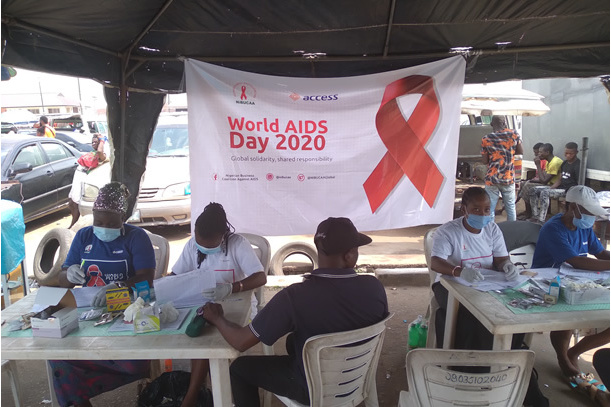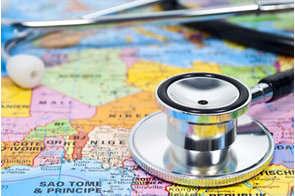On World Aids Day, Access Bank promotes HIV prevention

Summary
Nigeria has the second largest HIV epidemic in the world and one of the highest rates of new infections in Africa.
As part of Access Bank's commitment to support the improvement of health outcomes in Nigeria and across Africa, the bank continues to sustain its efforts in the fight against HIV (human immunodeficiency virus), which causes AIDS (acquired immune deficiency syndrome). HIV is considered one of the world’s most serious public health challenges.
Since the first cases were reported in 1981, almost 33 million people have died from AIDS. Of this number, 690,000 people died from HIV-related causes in 2019, according to the World Health Organisation. About 1.7 million people were newly infected with the virus in 2019, bringing the estimated total number of people living with HIV to 38 million in that year. Over two thirds (25.7 million) of all people living with the virus are in the WHO African Region.
According to Avert, a UK-based charity, Nigeria has the second largest HIV epidemic in the world and one of the highest rates of new infections in Sub-Saharan Africa. Many people living with HIV in the country are unaware of their status. Those who are aware of their positive status lack access to antiretroviral treatment (ART). HIV funding, testing and counselling are in severe shortage in Nigeria.
The outbreak of COVID-19 has reportedly caused serious disruptions in HIV-testing and treatment and ART, leading to severe negative impact on the lives of people living with the disease. Hence, there is a serious need for funding and other resources to expand access to testing, treatment and awareness to prevent the spread of the disease, which currently has no vaccine or cure. People who get access to ART following a positive HIV diagnosis prevent transmission to others and go on to live long lives.
Access Bank is at the forefront of private sector efforts to address the HIV/AIDS epidemic in Nigeria. As Co-Chair of Nigerian Business Coalition Against AIDS (NiBUCAA), the bank's Group Managing Director/ CEO, Herbert Wigwe, represents Access Bank at the coalition, which is leading private sector HIV intervention programmes in the country.
On December 1, 2020, Access Bank joined NiBUCAA to observe the World AIDS Day. The partnership with the coalition was aimed at raising awareness on HIV prevention, providing HIV counselling, testing and referrals to members of various communities across Lagos State, Ondo State and Abuja, the Federal Capital Territory (FCT). The communities where the campaign took place included Badiya, Epe, Ijora and Ikorodu (Lagos); Ondo Town (Ondo) and Mabushi community (FCT).
World AIDS Day takes place annually on December 1. It’s a day for people around the world to unite in the fight against HIV, show support for people living with the virus, and to commemorate those who have died from AIDS-related illnesses. In a statement by Access Bank made available to Financial Nigeria, the bank said World AIDS Day is a relevant event to always remind people and governments that HIV has not gone away.
“There is still a critical need for increased funding for the AIDS response, to increase awareness of the impact of HIV on people’s lives, to end stigma and discrimination, and to improve the quality of life of people living with HIV,” said Access Bank, which has been recognised by various organisations locally and internationally for its health interventions and more broadly for its sustainability strategy.
During the events by Access Bank and NiBUCAA to commemorate the World AIDS Day 2020, 3,164 people were tested for HIV; 15,000 condoms were distributed and 20,000 information, education and communication (IEC) materials on HIV prevention and treatment were distributed in the communities.
Related
-
Dangote-led health coalition appoints new CEO
ABCHealth is focused on improving health outcomes in Africa.
-
Low-income countries spend just $17 per capita annually on health – WB
Despite growing needs, spending has stagnated in real terms since 2018, with the priority for health ...
-
Access Bank distributes mosquito nets to pregnant women
The campaign to reduce malaria burden among pregnant women reached 200,000 people online.










